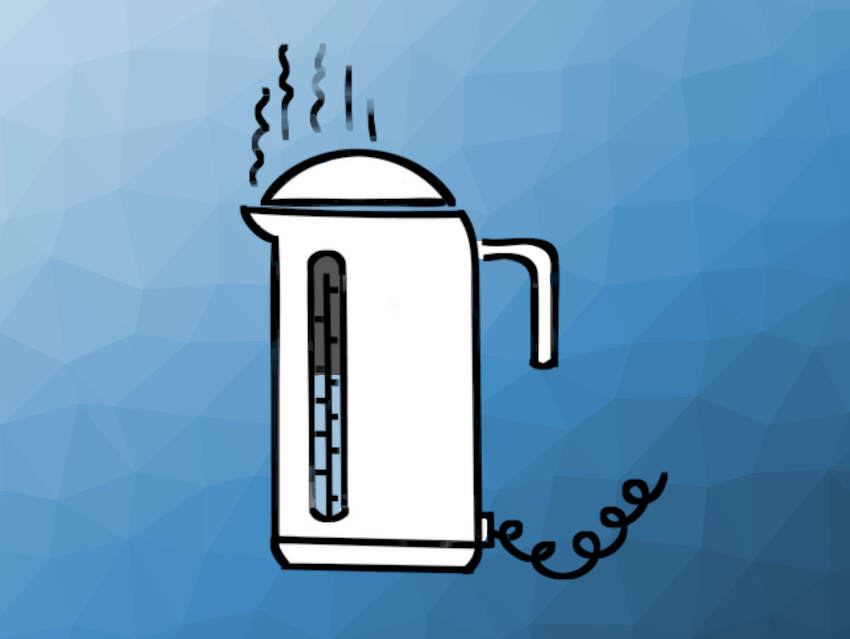Microplastics are plastic particles less than 5 mm in size, and nanoplastics are plastic particles smaller than 1 μm. Humans are exposed to nano/microplastics, e.g., via ingestion, and the particles could have negative health effects. The ingested nano/microplastics can come from food, but also from drinking water. Common drinking water sources are often contaminated with nano/microplastics, and water treatment plants can generally not remove all of them. Tap water, for example, often contains particles of commonly used plastics such as polystyrene (PS), polyethylene (PE), polypropylene (PP), or polyethylene terephthalate (PET).
Drinking boiled water is a tradition in some Asian countries, and boiling tap water before consumption can remove some pollutants. Volatile compounds, for example, can be removed or chemically degraded during boiling, and metal ions can precipitate in the form of carbonates. Zhanjun Li, Guangzhou Medical University, China, Eddy Y. Zeng, Jinan University, Guangzhou, China, and colleagues have investigated whether boiling can also remove nano/microplastics from tap water. The team used fluorescent polystyrene (PS) particles in two different sizes as model particles (average diameters of 1 μm and 0.1 μm) and added them to real tap water samples or water samples prepared from deionized water and calcium carbonate. All water samples were then boiled, left to cool, and the liquid phase was analyzed.
Using fluorescence measurements, the team found that up to 97 % of nanoplastic particles were removed by boiling. This is due to encapsulation by and co-precipitation with compounds such as calcium carbonate, which the researchers confirmed using microscopy and X-ray diffraction to analyze samples of the precipitates. The removal efficiency depends on the water hardness, the nanoparticle concentration, and particle sizes. The team also conducted experiments with microplastic particles and found that boiling hard water can remove most PS, PE, and PP microparticles.
- Drinking Boiled Tap Water Reduces Human Intake of Nanoplastics and Microplastics,
Zimin Yu, Jia-Jia Wang, Liang-Ying Liu, Zhanjun Li, Eddy Y. Zeng,
Environ. Sci. Technol. Lett. 2024.
https://doi.org/10.1021/acs.estlett.4c00081




